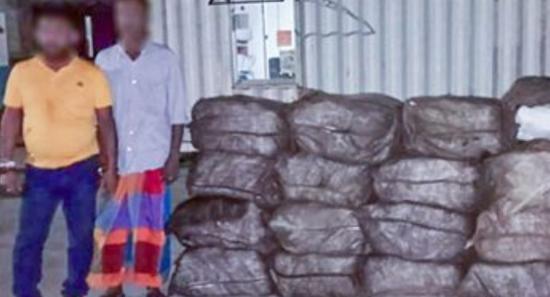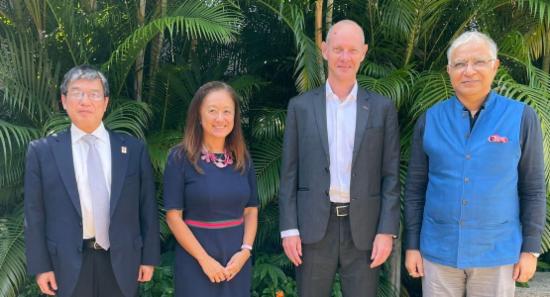.webp)
Tab project to cost taxpayer Rs 5.2bn annually
COLOMBO (News 1st) - The topic of providing tabs to students has once taken the spotlight. The Government through the 2017 budget promised to provide free tabs to students and teachers in G.C.E. Advanced Level.
On Monday (July 02), the Minister of Education speaking to reporters at the Ministry premises stated that this proposal will be implemented as a pilot project. A total sum of 05 Billion Rupees was allocated for this project, however, President Maithripala Sirisena intervened and stopped the project due to a memo forwarded to the Cabinet by the Ministry of Education, seeking permission to award the procurement tender to one particular supplier.
The National Education Commission, which makes recommendations to the President on educational policy, had also come to a consensus that the Tab project was not suitable for students.
The education ministry which is gearing up to launch the Tab program as a pilot project, last year printed the grade eight geology textbook on artificial paper - and this too was a pilot project. These textbooks were printed in complete deviation from the procurement process.
But after they were given to students, the books were collected back from them after the Institute on Technology had informed the Presidential Investigative Unit that the paper was harmful and poisonous. The Presidential Investigative Unit had uncovered that the Government incurred a loss of 128 Million Rupees through the printing of these books.
THE BOTCHED TENDER
While the Government suffered a loss of 128mn loss through the printing of textbooks, the Ministry of education is seeking 5.2 billion rupees annually to provide tabs to Advanced Level students. In comparision the allocation made to print text books for the year 2017 was just above 4.5bn.
The tender for the procurement of these tabs was very thorough, however, 3 days before the tender was closed the ministry of education added a new condition which was impossible to complete in 3 days unless someone had already done it. Afterward, 4 companies were shortlisted, yet the recommendation for the contract was not given to the company that placed the lowest bid, instead, the 3rd highest bidder was recommended.
The ministry noted that this recommendation was made based on 2 additional factors that the considered, the durability of the device and the health impacts on students. However, the Ministry is yet to disclose what criteria they used to test the durability of these devices and what tests were conducted to ascertain the health impacts on students.
The ministry of education which was concerned about the health impacts on students using tabs did not show this same concern when a pilot project was launched to procure Virtual Reality (VR) kits for 137 schools.
WHY TABS?
TABS are to be given to the advanced level students who are aged 17 or 18 years. Once these students pass out of school they will be able to take this device home with them. In two years they will become eligible voters. There are activists who have expressed fears that granting such devices could be a bribe to secure the youth vote in the country.
Other Articles
Featured News





.png )


-796915_550x300.jpg)
-796909_550x300.jpg)


























.gif)